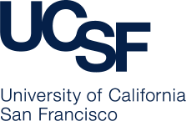FOR IMMEDIATE RELEASE
CONTACT: Roxanne Alaniz
EMAIL: roxanne@alanizmarketing.com
PHONE: 415-892-5252
Findings Published in Alzheimer’s & Dementia: The Journal of the Alzheimer’s Association
(San Francisco, CA) October 14, 2022 — Alzheimer’s disease research studies often fail to include Latino older adults, limiting researchers’ ability to discover diagnostic techniques and treatments that can benefit this community. To overcome this challenge, the Brain Health Registry (BHR) at UC San Francisco (UCSF) developed and launched digital marketing initiatives, including culturally informed websites and ads, to recruit Latino research participants.
Culturally informed efforts included:
- Listening to input from Latino community members to establish core messaging on marketing material.
- Using imagery relevant to the Latino community.
- Creating culturally informed enrollment messaging.
- Tailoring digital ads to reach the Latino community.
- Building culturally informed websites.
Over the course of a year, these marketing efforts successfully enrolled 3,603 older Latino adults into BHR. These findings can inform future efforts to connect and engage with potential Latino study volunteers. BHR detailed its efforts in the paper “Digital culturally-tailored marketing for enrolling Latino participants in a web-based registry: Baseline metrics from the Brain Health Registry,” which was recently published in Alzheimer’s & Dementia: The Journal of the Alzheimer’s Association.
Developing universally applicable diagnostics and treatments is a top priority for BHR. Current research results aren’t generalizable to everyone because most volunteers are non-Latino white individuals.
“In the past, we didn’t use our resources to reach out in culturally appropriate ways. We haven’t done enough to make all people feel welcome,” said Michael Weiner, M.D., Professor in Residence in Radiology and Biomedical Imaging, Medicine, Psychiatry, and Neurology at UCSF; BHR Principal Investigator. To change that, BHR is using digital marketing to connect with potential volunteers. “It’s time to bridge this gap and let our Latino community know that we appreciate their contributions to our research.”
Established in 2014, BHR is an online research registry with over 100,000 members that aims to recruit and monitor participants for aging research. Volunteers take online brain tests and complete questionnaires pertaining to their health, lifestyle, and memory. These assessments provide information that helps BHR and other researchers discover better ways to study, detect, and monitor Alzheimer’s.
All BHR participants are asked if they would like to receive information from the BHR team about other studies they might be eligible to participate in. If the answer is yes, then the participant is considered available for referral to other studies.
Alzheimer’s research is advancing. Until recently, Alzheimer’s could only be diagnosed after death. Now, brain imaging with positron emission tomography (PET scans) and new blood tests can diagnose Alzheimer’s disease in living people. The FDA recently approved Aduhelm, a treatment that clears amyloid protein, a hallmark of Alzheimer’s, from the brain. Several other treatments have FDA Breakthrough designation, which may lead to approval and the development of more treatments.
###
About the Brain Health Registry
The overall mission of Brain Health Registry is to accelerate the development and implementation of improved diagnostic methods and treatments for Alzheimer’s and other disorders impacting cognitive and functional impairment. For more information, visit BHR’s Spanish-language website or English-language website.




